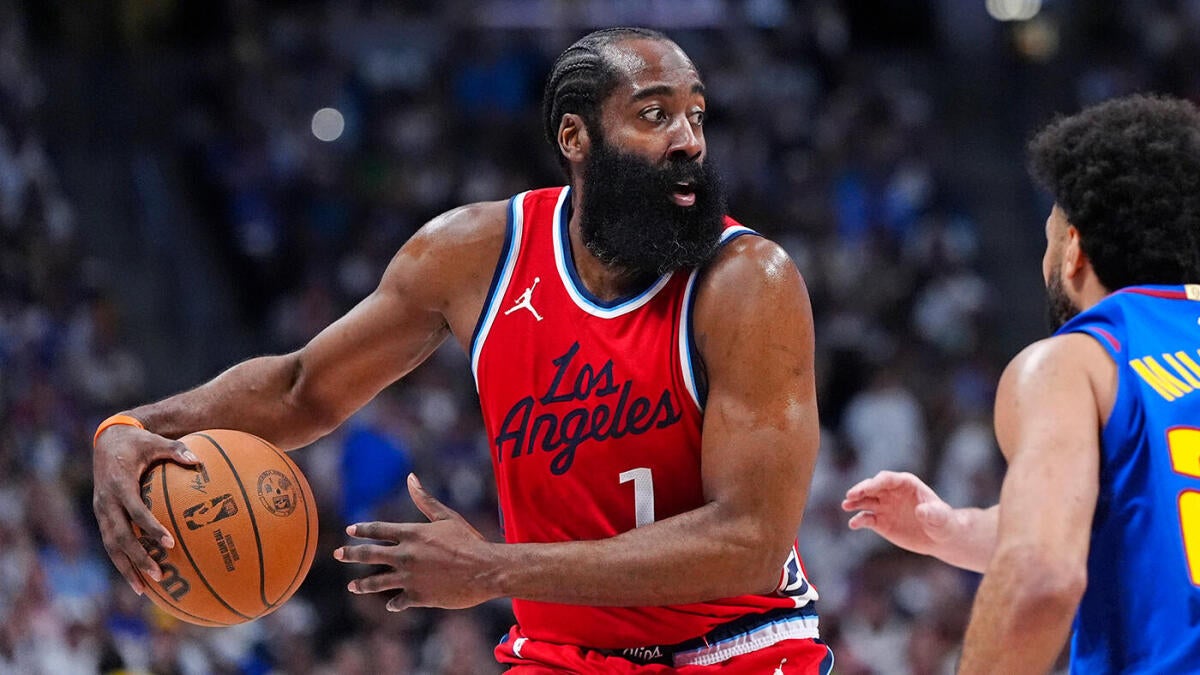“`markdown
James Harden’s vanishing act in Game 7 of the Clippers-Nuggets series wasn’t just a bad night—it was the latest chapter in a career-long paradox. A player capable of offensive explosions and MVP-caliber dominance repeatedly shrinks when the lights burn brightest. This analysis dissects the patterns, psychological undercurrents, and team-wide ramifications of Harden’s playoff fragility, while probing whether redemption remains possible.
—
The Illusion of Greatness
Harden’s regular-season accolades (three scoring titles, 2018 MVP) contrast sharply with his playoff résumé. The Nuggets’ Game 7 exposed familiar flaws: passive shot selection (eight attempts), defensive disengagement, and a startling lack of urgency. Compare this to his 28-point Game 6 performance—proof of his capability, making the subsequent no-show even more baffling.
Key Stat:
– Career Game 7 averages: 21.3 PPG, but only 7 points in 2024’s elimination game.
– Shot attempts in critical games drop by 23% compared to regular-season highs.
This isn’t an anomaly; it’s a trend. In 2021, he shot 5-of-17 against Atlanta. In 2022, he went 4-of-9 in a must-win Sixers game. The data paints a star who hesitates when stakes peak.
—
The Ripple Effect on Teams
Harden’s playoff struggles aren’t isolated—they derail franchises. The Clippers, built to contend, collapsed in Game 7 partly because their secondary scorer (Paul George: 14 points) faced doubled coverage while Harden faded into the background.
Systemic Consequences:
– Momentum Shifts: Denver’s Jamal Murray, despite a calf injury, attacked relentlessly (35 points), exploiting Harden’s defensive lapses.
– Leadership Void: Kawhi Leonard’s 14 points were uncharacteristic, but Harden’s passivity set a tone. Teams mirror their stars’ urgency—or lack thereof.
The Clippers’ offseason now hinges on existential questions: Can a Harden-led roster win when it matters?
—
The Psychology of Disappearing Acts
Why does a player with Harden’s skill set repeatedly falter? Possible factors:
Unlike Michael Jordan or Kobe Bryant, who thrived under scrutiny, Harden’s body language—slumped shoulders, minimal off-ball movement—betrays a star wrestling with doubt.
—
Paths to Redemption
Harden’s legacy isn’t irreparable, but fixes require radical honesty:
1. Role Recalibration:
– Accept a secondary role (e.g., 2020 Rajon Rondo with the Lakers) to reduce pressure.
– Emulate Chris Paul’s late-career playmaking focus.
2. Off-Ball Evolution:
– Study Reggie Miller’s movement without the ball to counter defensive traps.
3. Mental Reset:
– Sports psychologists helped Kevin Love and DeMar DeRozan; Harden could benefit similarly.
For the Clippers, the lesson is clear: Harden as a primary option in May/June is a gamble. Surround him with two-way players (e.g., Mikal Bridges types) to mask defensive lapses.
—
Final Verdict: The Curse of Potential
James Harden’s Game 7 no-show wasn’t just a loss—it was a metaphor. His talent tantalizes, but his playoff resume remains a cautionary tale. Until he confronts his mental blocks or adapts his game, the “Houdini” label will stick. For the Clippers and Harden, the 2024 collapse should be a wake-up call: greatness isn’t just about skill; it’s about showing up when the world watches.
The haunting question lingers: Can Harden rewrite his story, or is his legacy destined to be “almost” greatness?
“`











